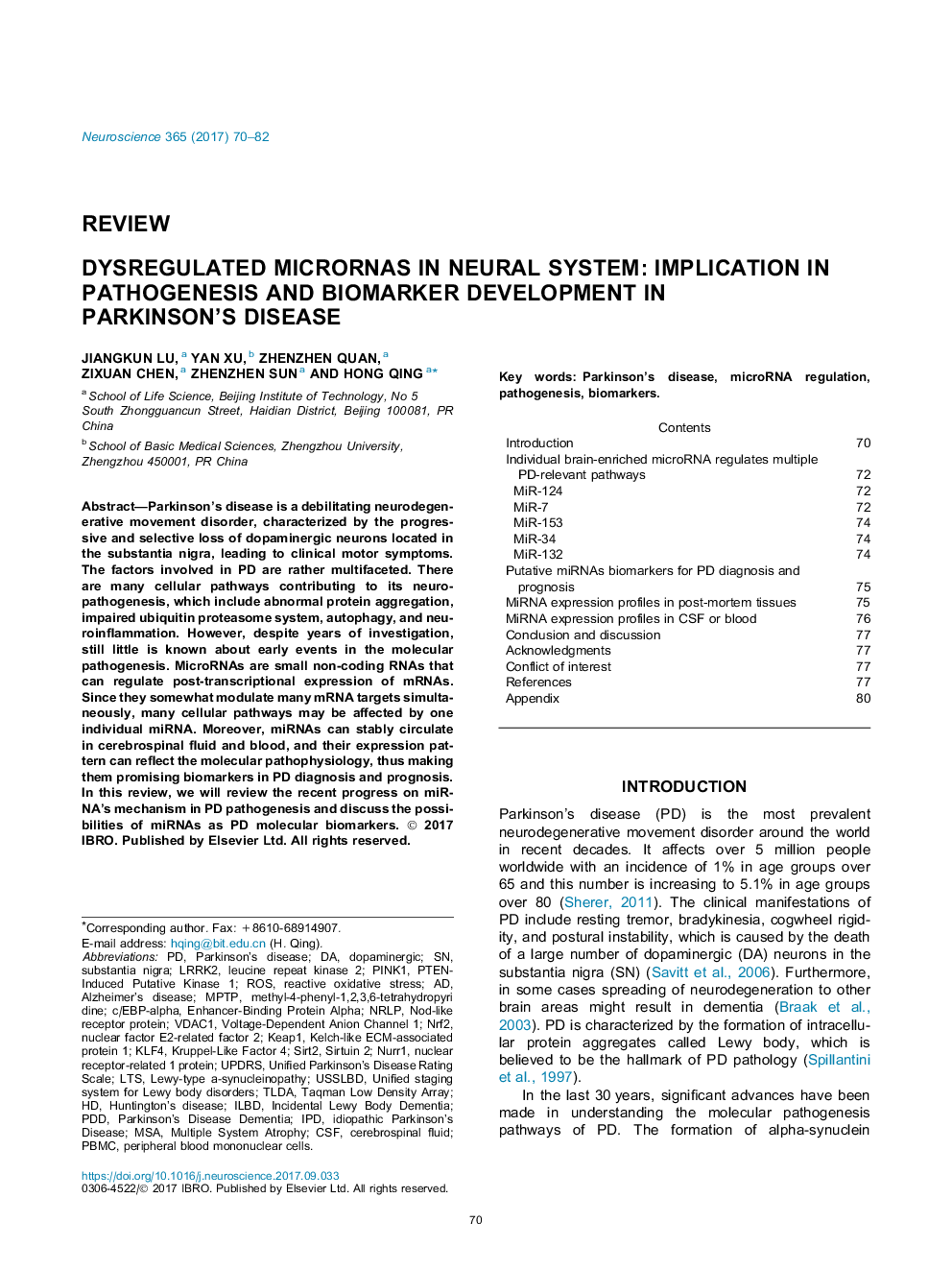| Article ID | Journal | Published Year | Pages | File Type |
|---|---|---|---|---|
| 5737396 | Neuroscience | 2017 | 13 Pages |
â¢The role of five brain-enriched microRNA families related to PD pathogenesis and progression are discussed.â¢Investigations regarding miRNAs' expression profile in post-mortem tissues are discussed.â¢Investigations to find miRNAs' biomarkers for PD diagnosis and prognosis in circulating fluid are discussed.
Parkinson's disease is a debilitating neurodegenerative movement disorder, characterized by the progressive and selective loss of dopaminergic neurons located in the substantia nigra, leading to clinical motor symptoms. The factors involved in PD are rather multifaceted. There are many cellular pathways contributing to its neuro-pathogenesis, which include abnormal protein aggregation, impaired ubiquitin proteasome system, autophagy, and neuroinflammation. However, despite years of investigation, still little is known about early events in the molecular pathogenesis. MicroRNAs are small non-coding RNAs that can regulate post-transcriptional expression of mRNAs. Since they somewhat modulate many mRNA targets simultaneously, many cellular pathways may be affected by one individual miRNA. Moreover, miRNAs can stably circulate in cerebrospinal fluid and blood, and their expression pattern can reflect the molecular pathophysiology, thus making them promising biomarkers in PD diagnosis and prognosis. In this review, we will review the recent progress on miRNA's mechanism in PD pathogenesis and discuss the possibilities of miRNAs as PD molecular biomarkers.
